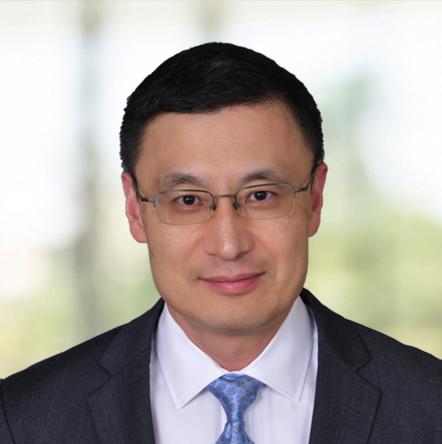Nearly five years after unveiling the first clinical data for its BCMA-targeted CAR-T therapy, Legend Biotech has transitioned into a commercial company with an FDA approval for Carvykti and Johnson & Johnson as its partner.
The Carvykti go-ahead moves Legend closer toward its dream to become a fully integrated global cell therapy leader with capabilities across R&D, manufacturing and commercialization, CEO Ying Huang said.
To get there, Legend is angling Carvykti for earlier multiple myeloma use, working to flesh out its pipeline and exploring more affordable ways to manufacture cell therapies.
Legend is currently collaborating with J&J’s Janssen on what Huang called a “divide and conquer” approach to Carvykti’s commercial rollout. Right now, the drug is approved in myeloma patients who have tried at least four prior lines of therapy.
Legend has convened a “small but highly effective” sales and marketing organization targeting about up to 80 treatment centers at large hospitals in the U.S., Huang said. Besides a field sales force, the team also includes nurse educators and medical science liaisons to help train nurses and doctors at those facilities on how to use Carvykti and how to manage side effects.
As for Janssen, the Legend partner is mainly focused on the community setting, with a sales force targeting about 5,000 hematologists, Huang said. Their job is to ask those doctors to refer Carvykti-eligible patients to a treatment center. The Big Pharma also has a dedicated cell therapy field team to help promote Carvykti in the hospital market.

With Carvykti showing a best-in-class efficacy profile compared with Bristol Myers Squibb’s rival CAR-T Abecma and GlaxoSmithKline’s antibody-drug conjugate Blenrep, Janssen figures the drug could reach more than $5 billion in peak sales. But a fifth-line indication won’t get it there.
To move Cavykti up in the treatment sequence, Janssen is running the Cartitude-4 trial in patients who have received one to three prior lines of therapy with the intention to nab a second-line label.
The Cartitude-1 trial used to support Carvykti’s current nod actually enrolled patients who’d received at least three previous treatments. But instead of a fourth-line nod, the FDA only granted a fifth-line approval.
Huang suspected that the less-than-ideal label was the result of an insufficient, 18% representation of fourth-line patients in Cartitude-1. For Cartitude-4, the pair aims to have a “balanced distribution” of all three subgroups of patients, he added.
In addition, Cartitude-5 is testing Carvykti as part of a first-line therapy following a combo of Takeda’s Velcade, BMS’ Revlimid and dexamethasone in newly diagnosed myeloma patients who are not suitable for stem cell transplant. Almost simultaneously with the FDA nod, Janssen posted a new phase 3 dubbed Cartitude-6, which pits Carvykti against stem cell transplant in newly diagnosed patients.
Carvykti’s FDA nod cemented Legend’s run as a poster child of successful innovation originating from China, especially as fellow Chinese biotech Innovent Biologics and partner Eli Lilly stumbled with their PD-1 inhibitor Tyvyt at the FDA. But Carvykti’s market potential in China remains less certain.
China only approved its first CAR-T therapy, Yescarta by a joint venture between Gilead Sciences’ Kite Pharma and local giant Fosun Pharma, in June 2021. The therapy bears a reported sticker of 1.2 million yuan (about $190,000). Although a big discount from the drug’s U.S. sticker of nearly $400,000, Yescarta’s Chinese price tag remains too high for the country’s health system, considering China’s health security watchdog has set an annual cost ceiling of 300,000 yuan for any drug to be considered for national reimbursement.
Huang declined to comment on Carvykti’s China pricing strategy for now as the drug hasn’t entered regulatory review. In the U.S., the drug carries a list price of $465,000.
Yescarta’s list price is high in China partly because it’s basically a foreign-developed med with manufacturing protocol and starting materials about the same as its American version, Huang observed. The CEO acknowledged that the pricing situation for CAR-Ts might not change in the near future, but Legend is already thinking about solutions.
“We have to think about the long-term strategy to supply the market; that is, can we, or how can we lower the cost of manufacturing significantly.” Huang said. “We can locally source the starting materials … and the nutrients for cell growth and also lentivirus vector. If we could solve that from the domestic market, that could potentially mean significant savings.”
Existing CAR-T therapies use lentiviral vectors to deliver genetic materials to a patient’s own T cells, and limited supply of viral vectors has tripped up BMS’ initial launch of Abecma. For Carvykti, Legend is relying on J&J to make the vectors, but the biotech is also building its own manufacturing presence. The company’s New Jersey site, which is jointly operated by J&J, is in the process of completing its last phase of capacity expansion.
“For our pipeline products, we are actually looking at many different potential alternatives,” Huang said of manufacturing lentiviral vectors. “If we could find an alternative within China that can be very cost-effective, I think that’s something we definitely will be very interested in exploring.”
Compared with existing autologous CAR-Ts like Carvykti, which draws blood from each patient and returns genetically modified T cells back to the individual, off-the-shelf CAR-T therapies that can produce multiple doses in a single batch could also be a way to lower cost, Huang noted. The company has a BCMA-targeted allogeneic CAR-T therapy in phase 1 test in China.